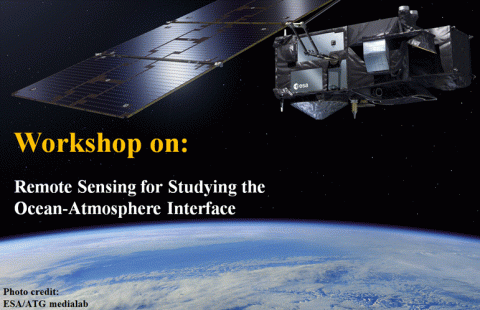1201 New York Avenue, NW Washington D.C. and online
ARCUS Arctic Research Seminar Series
Arctic Research Consortium of the U.S. (ARCUS)
Date/Time: Monday, 12 February from 12:00-1:00 p.m. ET
Speakers: Roberto Delgado (NIMH/NIH) and Andrea Horvath Marques (NIMH/NIH)
Presentation Title: Promoting Research on Mental Health, Resilience, and Wellbeing in the Arctic
To register for the event, go to:
https://www.arcus.org/research-seminar-series
For questions, contact:
Brit Myers
Email: brit [at] arcus.org
The Arctic Research Consortium of the U.S. (ARCUS) announces the next Arctic Research Seminar Series event featuring Roberto Delgado (NIMH/NIH) and Andrea Horvath Marques (NIHM/NIH). The event will be held in the ARCUS D.C. office at 1201 New York Avenue, NW Washington D.C. on Monday, 12 February 2018 from 12:00-1:00 p.m. ET. This seminar will also be available as a webinar live-stream for those unable to attend in person.
Registration is required for this event. To register, please visit: https://www.arcus.org/research-seminar-series
The ARCUS Arctic Research Seminar Series brings leading Arctic researchers to Washington, D.C. to share the latest findings and what they mean for decision-making. These seminars will be of interest to federal agency officials, congressional staff, non-governmental organizations, associations, and the public.
This seminar titled “Promoting Research on Mental Health, Resilience, and Wellbeing in the Arctic” will provide an overview of research and other activities supported by the National Institute of Mental Health (NIMH) and the National Institutes of Health (NIH) that aims to improve the mental health and wellbeing of Arctic residents.
Roberto Delgado works in the Office for Research on Disparities and Global Mental Health (ORDGMH) and the Office of Rural Mental Health Research (ORMHR) at the US National Institute of Mental Health (NIMH) of the National Institutes of Health (NIH), supporting the Institute’s efforts to reduce mental health disparities both within and outside of the United States. In this capacity, he is coordinating RISING SUN, an Arctic Council initiative with the goal of producing a toolkit that enables communities, governments, and key stakeholders to measure the effectiveness of suicide prevention interventions among indigenous Arctic communities. Roberto is also a Co-Lead of the IARPC Health and Well-being Collaboration Team, participates in the US Arctic Policy Group, and contributes to international working groups on biodiversity and sustainable development for the Arctic Council. His areas of interest include Arctic indigenous peoples issues, basic research, environmental conservation, public health, science policy, and social sciences.
Andrea Horvath Marques serves as Chief of the Mental Health Disparity Program at the National Institute of Mental Health (NIMH) Office for Research and Disparities and Global Mental Health (ORDGMH). She is trained as a psychiatrist, a neuroscientist, and public mental health researcher. An experienced psychiatrist and public mental health research professional, she manages a grant portfolio focused on suicide prevention in Native American and Native Alaskan communities. Dr. Horvath Marques coordinates NIMH efforts related to Mental Health Disparities research and co-leads the NIMH's Mental Health Equity Workgroup. She supports the ORDGMH Global Mental Health Program by serving as a Project Scientist for the Research Partnerships for Scaling Up Mental Health Interventions in Low- and Middle-Income Countries. Dr. Horvath Marques earned an MD with specialization in Psychiatry and a Ph.D. in Clinical Psychiatry from the University of São Paulo's School of Medicine. She also earned a Masters of Public Health from Columbia University's Mailman School of Public Health.
This event is a brown-bag lunch that will be held in the ARCUS D.C. office (1201 New York Avenue, NW Washington D.C. Fourth Floor). Cookies and beverages will be provided.
A live webinar is also available to those unable to attend in person. Instructions for accessing the event online will be sent to webinar registrants prior to the event. For those of you on Twitter, we also invite you to join us in live-tweeting the event using the hashtag #arcuswebinar.
For more information and to register for the event, go to:
https://www.arcus.org/research-seminar-series.
For questions, contact:
Brit Myers
Email: brit [at] arcus.org

